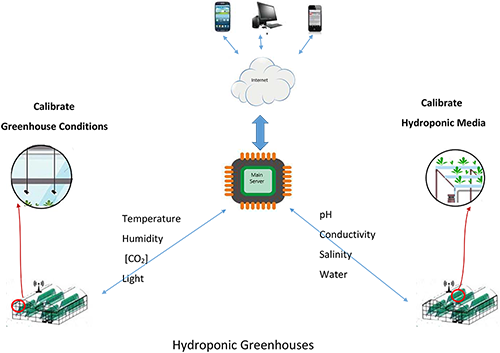Partner with HKPU and Macau University
Tourism management is the oversight of all activities related to the tourism and hospitality industries. It's a multidisciplinary field that prepares people with the interest, experience, and training for management positions in the food, accommodations, and tourism industry.
TULIP Lab has nearly two decades' consultation experience in tourism and hospitality industry. We are specialized in group behavior pattern analysis, tourism demand forecasting, and competitiveness discovery. We are also capable of data-supported commercial service and consultation related to tourism/hospitality industry.
Partner with Chonnam National University
Smart Farming has emerged as an application of the Internet of Things (IoT) with the development of information and communication technology. Smart farming usually refers to the utilization of digital technologies, IoT, cloud computing, robotics, sensors, location systems and artificial intelligence on the farm. It is also known as digital farming, data-driven farming, Agriculture 4.0 and sometimes Agriculture 5.0. The infrastructure of the farm consists of sensors for environmental data and surveillance cameras. Through the gateways, those data are connected to the service platforms accessible to farmers. Similar to other agriculture technologies, smart farming aims to control and improve food manufacture.
In the past decade, smart farming has been developed into various domains such as large-scale open environment farming (field crops), control environment (plant houses) and dairy and poultry farming. Compared to traditional farming, smart farming has more advantages with new technology, facilities and data gathered during the farming processes. The quality of products can be enhanced by proper monitoring. For example, any pest intrusion or disease could be detected in advance from data collected. Previously recorded information could be used for farm labour force support, efficient resources management, limiting the use of non-essential pesticides and fertilizers. This type of novel farming could even result in sharing domain expert knowledge.
To harvest qualitative products, improve the profit and make informed decisions, there is a need for farmers to take full advantage of relevant data sources, so they can benefit from the discovered regularity, patterns, or knowledge embedded in accumulated data. It is well known that big data in smart farming provide such an opportunity. Currently, agricultural practices are leveraging huge data analysis methods to utilize smart farming data sensibly and cost-effectively. Typical smart-farming applications are discussed here to show the versatility of big data in smart farming analytics.

Partner with Dasheng Petroleum Engineering Technology Service
The surveillance of oil and gas wells often faces complex environments such as heavy fog and rain, sandstorms, which result in a lot of noises in the monitoring images.
with the support of big data, the remote monitoring of oil and gas wells based on intelligence methods can not only solve the problems caused by manual monitoring, but also increase the management of oil and gas wells to the extent of digitization and intelligence. Thus, it will achieve the goal of reducing the labor intensity of workers and energy consumption, achieving safe production, improving the information level of oil and gas production and management, and promoting efficient development of oil and gas wells.
International Patent
Patent: IOT Architecture For Manufacture of Similar Products, Application No: 201941041825A, 25/10/2019, India
Industry Awards
IFITT Journal Paper of the Year Award (2018)
IFITT Journal Paper of the Year Award (2016)


